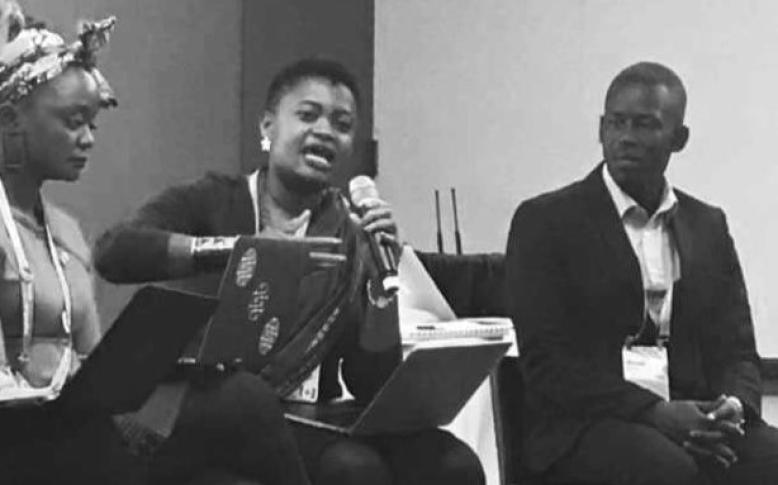
The recently concluded RightsCon held in Toronto, Canada as a platform that values respect, diversity and inclusion in the digital age was a remarkable event that saw wonderful discussions and insights into the current contemporary challenges facing the globe, ranging from free expression to online rights, cybersecurity, women and gender, and ICT policies and perspectives, among others. I was able to take part in this important event with support from the APC Member Exchange and Travel Fund.
The Women of Uganda Network (WOUGNET) alongside the Research ICT Africa network based in South Africa organised a session that aimed at exploring key issues and constraints facing marginalised women: often invisible groups rarely talked about and catered for. These groups include the rural women, the refugee women, young girls, and the LGBTIQ communities, among others. The session also aimed at analysing ways to overcome the constraints encountered by these so-called invisible women with policies and measures informed by evidence-based research in the global South.
The session that I facilitated and moderated on behalf of WOUGNET saw panellists from diverse experiences and backgrounds articulating key gender-related digital issues affecting women and especially the invisible women and devising policy options and alternatives that could be used to address these phenomena. Panellists included Valentina Pellizzer of the APC Women’s Rights Programme, Dhanaraj Thakur of the World Wide Web Foundation, Evelyn Namara of the ISOC Uganda Chapter, Chenai Chair of Research ICT Africa, and Mary Bridger from Equal Measures 2030.
The panellists noted that the issue of digital gender divide is a big problem that must be addressed through concerted efforts. It was further noted that there are some specific barriers in different communities and contexts, although barriers to connectivity were believed to cut across many segments of the groups of invisible women. For her part, APC’s Valentina Pellizzer observed that LGBTIQ communities face significant challenges that are deeply rooted, and what is required is to dismantle issues of patriarchy and power relations and devise principles that promote inclusivity and diversity without any discrimination based on race, gender, colour or sexual orientation. Dhanaraj Thakur of the Web Foundation took participants through different policy interventions and explained how such interventions take into account the different dimensions of gender.
The issues of refugee women, young girls and rural women were discussed based on research work done by Research ICT Africa and ISOC’s Evelyn Namara, which noted diverse but compelling challenges and constraints facing such women. It is therefore crucial to seek solutions that take into account different stakeholder roles. Participants shared their experiences and raised concerns related to privacy and safety for women online, as well as the key role of access and affordability in addressing such constraints, and the importance of enhancing opportunities for women to actively benefit from ICT resources as productive assets for everyone.
The session was organised against the backdrop of the ITU’s 2017 Measuring the Information Society report, which argued that despite increased proliferation of ICT tools and initiatives, the gender digital gap will remain unclosed unless there are specific initiatives designed with broader stakeholder communities to close this divide.
Photo: Left to right, Chenai Chair, Evelyn Namara and Moses Owiny. Courtesy of Chenai Chair.